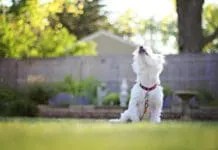In our age of modern medicine, when illnesses are treated in high-tech hospitals with laser surgery and powerful prescription drugs, it is easy to forget that until the 20th century, plants were the medicines that kept people and their companion animals well. In fact, most of the prescription drugs in use today were derived and synthesized from plants, and outside of Canada and the United States, plants remain the world’s primary healing agents.
The surgical techniques and pharmaceutical drugs that define Western medicine work well in acute or crisis conditions, but they are far less successful in the treatment of chronic illnesses. This is because Western medicine as practiced by physicians and veterinarians is allopathic, which means that its focus is the alleviation of physical symptoms, not finding and treating the cause. Chronic conditions like arthritis, skin and coat problems, gingivitis, ear infections, asthma and allergies may improve temporarily when symptoms are masked, but they usually recur and, over time, grow worse. For this reason, conventional or orthodox medicine considers these conditions irreversible and incurable. In addition, drugs and surgery carry hidden costs in adverse side effects that range from negligible to fatal.
The advantage of natural remedies is that they often work as well as or better than conventional treatments, have fewer side effects and address the cause of a condition, resulting in its improvement or cure. It is because of allopathic medicine’s limitations that so many Americans have begun to explore more natural approaches to health and healing. This is not to say that natural therapies are successful in treating every condition in every person or pet, but they offer a first line of defense in the prevention of problems and, when an illness is well-established, they can help speed healing.
By far, the world’s most widely used natural therapy is herbal medicine. Every culture on every continent has experimented with local plants and developed a tradition of diagnosis and use, a repertoire based on experience and observation.
Excerpted from long-time Whole Dog Journal contributor CJ Puotinen’s incredible resource, The Encyclopedia of Natural Pet Care. This 500+ page volume is everything you need to know to ensure good health and long life for your dog. You can purchase it right now from Whole Dog Journal.








